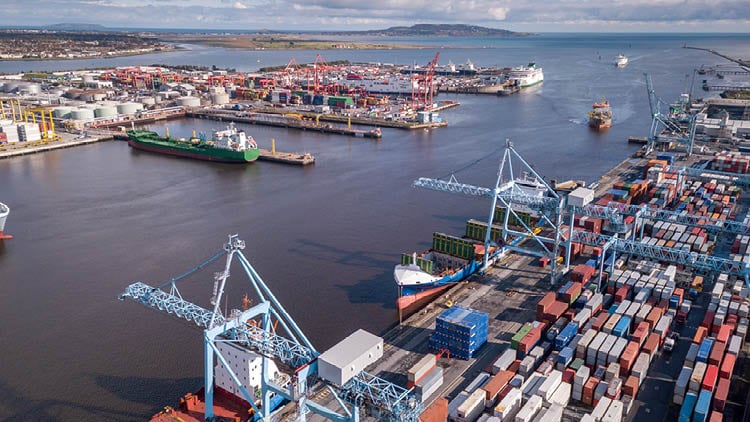Background
With continued developments in US trade policy, please see this week’s key updates in our latest round-up on tariffs, global tax and beyond.
The week in summary
Tariff Letter to EU
On Saturday 12 July, President Trump issued a tariff letter to the EU outlining the duty rate which will be applicable on EU origin goods shipped to the US and which will come into effect from 1 August. President Trump confirmed in this letter that a rate of 30% will apply to EU goods.
While this is higher than the 20% rate originally advised on “Liberation Day”, it is lower than the 50% rate which was mooted by President Trump over the previous two weeks. The text of the letter does not contain any additional detail and follows the same format of letters issued to other countries throughout the course of last week.
Sector specific tariffs, such as the 50% applicable to steel, aluminium and copper (effective 1 August), remain in place and unaffected by this letter. Similarly, products which were originally excluded from the “Liberation Day” tariffs, such as pharmaceuticals and semiconductors, are not specifically caught by the measures announced on Saturday.
Importantly, the letter once again highlights the US position that any retaliatory measures taken by the EU will be met with like-for-like action by the US in response, stating “If for any reason you decide to raise your Tariffs and retaliate, then, whatever the number you choose to raise them by, will be added onto the 30% that we charge”.
From an Irish perspective, while pharmaceuticals and semiconductors are not affected by this recent announcement, the outcome of recent Section 232 investigations into these products has yet to be issued. Similarly, a Section 232 investigation into commercial aircraft and jet engines, and parts for commercial aircraft and jet engines, remains ongoing. Attention remains high on the outcome of these investigations and associated actions which are taken by the US administration and the impact this may have for Irish businesses.
EU Response
With negotiations between the EU and US on a framework agreement still in progress, it is yet to be seen whether the issuance of this letter will have any impact or change the course of the talks. Similarly, the impact that this letter may have on the first round of retaliatory EU tariffs on €21.5 billion of US imports, due to come into force on Tuesday 15 July, should be monitored. Given the ongoing talks between the two parties, the EU may determine that a postponed of these measures until 1 August, in line with the revised US date, is most appropriate.
In response to President Trump’s letter, EU Commission President Ursula von der Leyen issued a statement on Saturday outlining the blocs commitment to continuing trade talks while reaffirming that proportionate countermeasures remained an option;
“Imposing 30 percent tariffs on EU exports would disrupt essential transatlantic supply chains, to the detriment of businesses, consumers and patients on both sides of the Atlantic.
Few economies in the world match the European Union's level of openness and adherence to fair trading practices. The EU has consistently prioritized a negotiated solution with the U.S., reflecting our commitment to dialogue, stability, and a constructive transatlantic partnership.
We remain ready to continue working towards an agreement by August 1. At the same time, we will take all necessary steps to safeguard EU interests, including the adoption of proportionate countermeasures if required.”
Speaking in Brussels on Sunday, Commission President von der Leyen said negotiators would keep pushing for an EU-US deal that suspended those threatened higher tariffs rates while restating the EU position on the use of countermeasures.
“We have always been very clear that we prefer a negotiated solution. This remains the case and we will use the time that we have now till the first of August. We have prepared for this and we can respond with counter-measures if necessary,”
Irish Response
Echoing comments made by President von der Leyen, Taoiseach Micheál Martin said the EU has engaged with the US in “good faith” and all options remain on the table for a trade deal.
“The EU and the US enjoy the biggest trade and investment relationship in the world. When issues arise between us, they should be resolved by close and respectful dialogue.
The EU, through the team led by President von der Leyen and Vice-President Šefčovič, has engaged in good faith to reach an agreement on a positive and balanced way forward.
While it has been clear that all options remain on the table, the EU has also been clear that our preference is for a negotiated solution that avoids escalation. That remains the case.”
Tánaiste and Foreign Affairs Minister Simon Harris said the US letter is “deeply regrettable,” stating;
“There is no necessity to escalate the situation or to further increase the additional tariffs which have been imposed on the EU.
The Government strongly supports the efforts by the European Commission to reach a mutually beneficial agreement with the US.
The EU is at the negotiating table and will remain there. Now is the time to redouble our efforts and to seek to achieve positive results in the time available. The EU will remain united and focused as negotiations continue between now and 1 August.
This will also be my continuing focus for the period ahead. On Monday I will meet with the US ambassador to Ireland and will continue to engage with colleagues across the EU in the days ahead. I also intend on updating colleagues further at the cabinet meeting on Tuesday.”
We’re here to help you
Keeping up to date with US trade policies, trade agreements and new and existing tariff reviews which may lead to further tariff measures is crucial to assessing the risk to your supply chain and the impact these tariffs may have. Understanding your product portfolio and the impact that tariffs may have on your imports is an important first step. We are here to support your business with this analysis and navigating these choppy waters.
Specialist Tax Services
Helping businesses navigate risks and realise opportunities.
Contact us













Menu